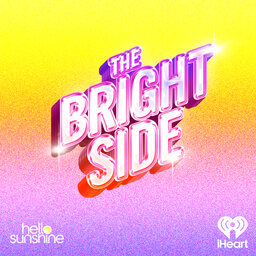Olympic Athlete Sunny Choi Is America’s Breaker
American breaker (not “breakdancing!”) Sunny Choi joins Danielle and Simone in the studio to talk about her preparation ahead of the Paris Games. In just a few weeks, she will represent the United States in the first-ever Olympics to feature breaking. Sunny opens up about finding the courage to turn her entire life upside in her early thirties and pursue a second shot at the Olympics.
In 1 playlist(s)
The Bright Side: A Hello Sunshine Podcast
The Bright Side, the hit podcast from Hello Sunshine, is back for a brand new season! Every Monday, …Social links
Follow podcast
Recent clips

Self-Care Is a Lie We’ve Been Sold—Dr. Pooja Lakshmin Explains What Actually Heals Us
46:53

Understanding GLP-1 Medications: Hormones, Menopause & the Science Behind the Headlines with Dr. Rocio Salas-Whalen
38:19

Replay: Karen Pittman on The Morning Show's Wild New Season and Leaving Imposter Syndrome Behind
41:46
 The Bright Side: A Hello Sunshine Podcast
The Bright Side: A Hello Sunshine Podcast